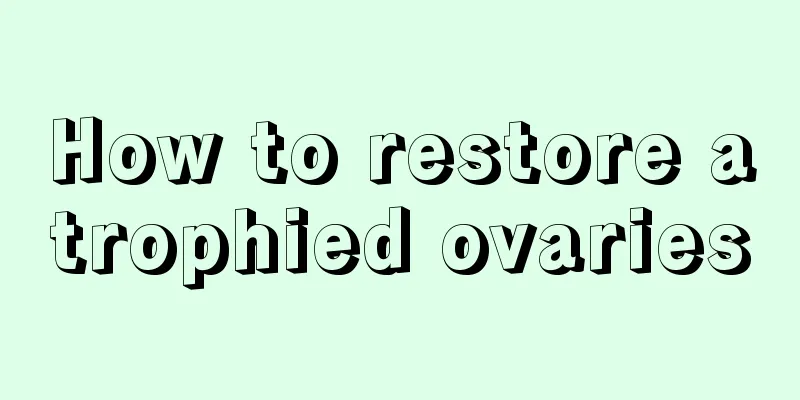Is it normal to still have lochia 30 days after giving birth?

|
Generally, after giving birth, mothers will have lochia. This is actually normal. The lochia usually lasts for about 20 days. For some friends, the lochia has lasted for 30 days. If it still occurs, there is no need to panic because it is related to physical constitution. For some people, the lochia will last for 40 days before it ends. How long it takes for postpartum lochia to clean up is a question that mothers are concerned about. Postpartum lochia can usually be discharged within 3 weeks (21 days) after delivery. Postpartum lochia is the secretion discharged from the genitals by the healed uterus. However, the time it takes for the lochia to stop can vary from person to person. For some women, it can be as short as 2 weeks (14 days), while for others it can take an average of 6 weeks (42 days). The color of postpartum lochia will change from red to white over time. The specific process is as follows: 1. Bloody lochia. 3-4 days after delivery, the stool is bright red and contains a large amount of blood, sometimes with small blood clots. 2. Light red in color and contains a lot of serous fluid. It lasts for about 10 days, with a small amount of blood but more necrotic decidual tissue. 3. White lochia. It lasts for 3 weeks and is clean, sticky and white in color. Contains a large number of white blood cells, necrotic tissue decidua, epidermal cells and bacteria. How long does it take for lochia to be clean after cesarean section? Under normal circumstances, the lochia from caesarean section will be clear about 20 days after delivery. The lochia has a bloody smell but is not smelly. If lochia recurs 30 days after caesarean section and is accompanied by a foul odor, abdominal pain, fever, etc., it is possible that the uterus, ovaries, fallopian tubes, or vagina are infected. If the amount of lochia increases day by day, the color gradually turns red and darker, or there are bruises, accompanied by uterine bleeding, and vaginal trauma, it may also be due to infection that causes the lochia to remain unclean for a long time. If you experience residual lochia after a caesarean section, you should take it seriously and go to the hospital for examination and treatment in time. |
<<: What to eat for uterine prolapse?
>>: What is the situation when lochia suddenly increases after childbirth?
Recommend
Green viscous liquid flows from below
Every woman should pay attention to the secretion...
Is nipple pain normal during ovulation?
It is normal to experience nipple pain during ovu...
Can you still get pregnant after having sex and then having your period?
Menstruation is a physiological cyclical period t...
There are 5 health turning points in life! You must know them in advance
During a person’s life, the body will have severa...
What is the relationship between nutrition during pregnancy and fetal development?
Pregnancy is the most important time for us to pr...
What are the symptoms of heavy moisture in girls
For girls, it is easy to cause excessive moisture...
What are some tips for women to keep healthy in winter?
Winter is a very cold season of the year. People ...
Can mothers eat apples during confinement?
Apple is a very good fresh fruit, and many childr...
Why can't you have sex when you're pregnant?
Everyone knows that women cannot have sex in the ...
What kind of water is good for pregnant women to drink besides boiled water?
Pregnant women are very weak when they are pregna...
7 signs of breast cancer remind you to get checked
1. Breast lumps Breast lumps are the main symptom...
What medicine can pregnant women take for cold and cough
Pregnant women are one of the groups most suscept...
Can I wash my hair when I have my period?
The question of whether women can wash their hair...
What are the early symptoms of HPV
HPV is very common in women, and infection with t...









